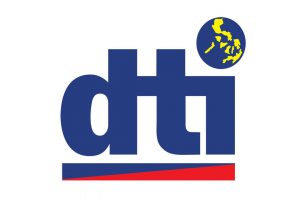THE Department of Trade and Industry (DTI) said the ratification of the Regional Comprehensive Economic Partnership (RCEP) remains one of its top priorities due to the unease that failure to sign on to the trade deal has caused investors.
The DTI was briefing the Senate Trade, Commerce and Entrepreneurship Committee on Monday on its policy priorities. Trade Secretary Alfredo E. Pascual said that “most of the investors in these industry clusters will most likely come from abroad.”
The priorities include industrials, manufacturing and transport; technology, media and telecommunications; health and life sciences; and modern basic needs; and measures to make the economy more resilient.
“There are the foreign investors setting up these enterprises here in partnership with local investors, and the target of these industry clusters is the export market,” Mr. Pascual said. “We want these enterprises to be participating in the global value chains in the products produced under these clusters.”
He said through industrialization, especially in the priority areas, the Philippines will be able to offer better-quality and higher-paying jobs.
“So it is very important, I’d like to emphasize, that RCEP be ratified or be confirmed by the Senate because we’ve always been asked by prospective investors, foreign chambers about how soon (we can ratify) RCEP because their own people, the companies in their respective regions, are asking them, before they consider investing in the Philippines,” he added.
RCEP, which started coming into force in participating countries on Jan. 1, involves Australia, China, Japan, South Korea, New Zealand and the 10 members of the Association of Southeast Asian Nations (ASEAN).
The Philippines is one of three countries that have not ratified RCEP, along with fellow ASEAN members Indonesia and Myanmar.
President Ferdinand R. Marcos, Jr. has said that he wanted to review the trade agreement to protect the agriculture sector.
Senator Pilar Juliana S. Cayetano said the DTI must work closely with the Commission on Higher Education (CHED) and public and private universities, to better align job creation efforts with academic training being received by future workers.
“A lot of (students) will end up going abroad or end up in unrelated fields which is kind of sad, so as early as now, we have six years, let’s plan this carefully, work with the state universities on what the demand is, what the particular specifications you are looking for,” she said.
“We need to understand what we really expect from our human resource pool and align this with the demand,” she added, noting that since becoming a senator in 2004, she has not seen adequate coordination between agencies and the education industry.
Mr. Pascual said that when he “made this presentation to the Cabinet, I highlighted, very specifically, the need to collaborate with CHED, DepEd (Department of Education) and TESDA (Technical Education and Skills Development Authority) for purposes of developing the necessary skills among our human resources, our workers.”
Ms. Cayetano said she has never seen a sustained effort in this regard.
“The coordination… rarely happens. Maybe you can form a committee that really sits down together because otherwise, it doesn’t happen,” she said.
The DTI’s other priorities are the Omnibus MSME Code to support small businesses, and the proposed Internet Transactions Act.
The Internet Transactions measure seeks to protect consumers and merchants via the creation of an e-commerce bureau.
Trade Assistant Secretary Mary Jean T. Pacheco, speaking at the hearing, said the department is proposing exempting newly registered e-commerce micro-enterprises from all national and local taxes in their first three years, as long as the enterprise is not an affiliate, subsidiary or a franchise of any other existing company.
If it is a one-person corporation or partnership, it must not have any previous or other existing registered companies, partnerships or businesses. For corporations, each stakeholder must have at least a 5% stake with no shareholders holding stock in trust for others.
“This will allow micro-businesses to pivot from offline to online, and it will also encourage them to register and take care of the business for the first two to three years as they grow into a bigger business,” Ms. Pacheco said.
The measure seeks to establish effective regulation for commercial activities performed on the internet.
“We’d like to see a robust e-commerce sector that will also ensure consumer protection, data privacy, intellectual property and security, as well as adhere to product and safety standards,” she said.
The Philippines has the fastest-growing digital economy in Southeast Asia, according to the e-Conomy Southeast Asia Report, which projects the Philippines’ overall internet economy in terms of gross merchandise value (GMV) at $40 billion by 2025.
Philippine internet economy GMV was estimated at $17 billion in 2021, up 93% from a year earlier, due to government initiatives and mass digital adoption, aided by double-digit growth in sectors such as food delivery services.
The Philippines also added 12 million new digital consumers since the pandemic started in March 2020. Of this, 63% are from non-metro areas. A majority also said they plan to continue using these services after the pandemic.
Ms. Pacheco said the Trade Secretary “should be granted the authority to issue take down orders, including the regulatory jurisdiction…over digital platforms.”
“One of the most contentious issues is the issue of liability for the platforms,” she added. “There are also penalties provided under the law, but the private sector can make a comment about removing the criminal aspect of penalties.”
The bill was earlier approved by the House of Representatives on final reading but remained pending on second reading at the Senate by the end of the 18th Congress. — Alyssa Nicole O. Tan
